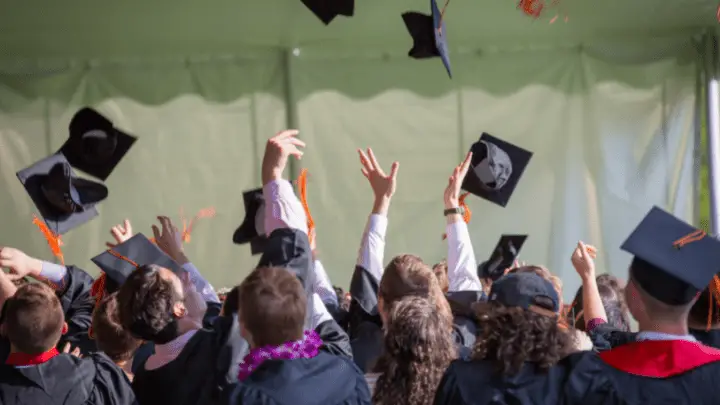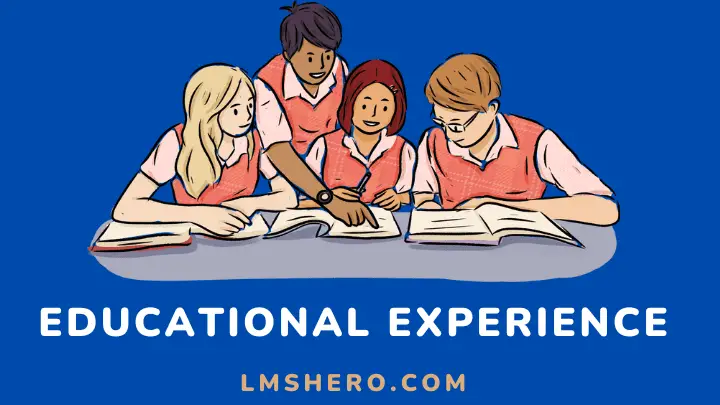The best ways to boost a student’s educational experience can vary depending on the student’s interests and needs.
Some students prefer more hands-on learning experiences, while others want the opportunity to explore different subjects further.
Some students may want to foster relationships with their professors, others may want to stay active on campus and find social events that appeal to them, and so on.
Whatever a student’s preferences or needs, various options are likely available. This article will focus on specific ways to boost your educational performance and experience.
With these tips in mind, you should be able to achieve your goals and improve your education significantly. Let’s get started.
1. Attend lectures regularly
Learning is an ongoing process that never ends. If you want to stay ahead of the curve, hit the lecture hall every chance.
Frequent exposure to new information will help you retain what you’ve learned and expand your horizons.
When you attend a lecture regularly, you have more knowledge, can engage with the material deeper, and build on what you’ve learned in previous lectures.
In other words, you can improve your knowledge and skills exponentially. Not only does this help you academically, but it also proves beneficial when it comes to professional development.
2. Avoid procrastination and study smartly
Too often, students put off studying until the last minute – to find themselves overwhelmed and struggling. But there’s a better way. By avoiding procrastination and studying smarter, you can enjoy learning.
Procrastination is putting things off until later when they’re more difficult or uncomfortable.
Studies show that students prone to procrastination tend to perform worse in school. Why? Because they put off challenging tasks and study materials until the last minute, which makes them less prepared and less able to learn.
The better approach is to study smarter. When you break down a complex task into smaller pieces, it becomes easier to understand and remember.
And that means you’ll be able to get more out of every class and Increase your chances for success.
3. Network and surround yourself with motivated people
No one knows better than successful professionals how important it is to surround themselves with people who challenge and motivate them.
Successful people know that a good educational experience isn’t a one-time event – it’s a continuous journey that requires continual growth and refinement.
By surrounding yourself with like-minded individuals, you’ll be able to improve your chances of success. They’ll also help you connect with potential employers, which is essential for finding the right job.
In short, being connected and surrounded by motivated people is key to a successful educational experience.
4. Get involved in clubs and events
Joining a club or event related to your interests will help you meet people with similar interests and discover more about what interests you.
It can also help boost your educational experience by exposing you to new ideas and learning how to solve problems outside the classroom.
In addition, many clubs and events offer scholarships and other prizes that can significantly impact your financial situation.
If you need help determining which clubs or events are right, ask one of your professors or educational consultants.
They likely have a list of students who have successfully integrated these activities into their curriculum.
5. Manage your time effectively
Too often, students focus on the tasks without taking the time to understand why they’re important. Or worse, they cram for exams or finish their homework without spending enough time reviewing concepts.
This approach only leads to frustration and inadequate preparation. To get the most out of your learning and educational experience, you need to develop a system that works for you. Then stick to it.
That means managing your time effectively. Knowing what’s important and when it’s due will save you time and stress and improve your ability to absorb new information.
You’ll be able to better allocate your time and achieve the desired level of success.
6. Take responsibility for your education
Years from now, when you think about your educational experience, what will you remember? Memories of class, memories of professors, memories of friends?
Or will you remember times that you didn’t show up to class, forgot to do your homework, or drank too much and failed to study?
Taking responsibility for your education means being proactive and doing your best. It means being accountable for your learning and not letting other people – or life’s obligations – get in the way.
It means being determined and pursuing your goals no matter what. Because the truth is, if you want to achieve great things, you must start somewhere. And that somewhere is often in the classroom.
It can be difficult to balance school and social life, but it’s important to do so if you want to achieve the best educational experience possible.
Too much socializing can interfere with your ability to pay attention in class, remember information, and devise creative solutions.
Instead of sacrificing your education in favor of socializing, try to find time for both activities in moderation. That way, you’ll be able to maximize your educational potential while still enjoying yourself.
8. Diversify your learning experience
Like most diligent students, you want to be sure you’re getting the best possible education. And the best way to do that is to mix up your learning experiences.
Diversity of thought and experience enriches learning, broadens your worldview, and makes you more tolerant and open-minded.
It also helps you develop problem-solving skills, learn critical thinking, and better understand different cultures. Plus, it’s just plain fun.
So why not put your educational experience on a rich and rewarding footing by diversifying your learning experiences?
9. Do not be afraid to ask for academic help
There’s something incredibly satisfying about knowing that you can do something independently, even if it’s difficult.
But sometimes, you feel like you can’t do it. You’re afraid of making a mistake, of not being good enough. You don’t want to be told what to do. And you don’t want to look stupid in front of your classmates.
But that’s where academic help comes in. It’s not a sign of weakness to ask for help. In fact, it’s the opposite. It shows that you’re willing to put in the effort and are confident in your abilities.
It also shows that you’re willing to learn from others – even if they have more experience than you do.
And the best part is, once you’ve asked for help, you’re officially on your way to becoming a better learner.
10. Find a mentor
No one is better equipped than a mentor to help you achieve your educational goals.
A committed mentor will guide and support you every step of the way, ensuring that your educational experience is as fulfilling and successful as possible.
Whether you’re looking for advice on studying for exams or seeking guidance in developing lifelong skills, a mentor can provide invaluable assistance.

FAQs
What is an educational experience?
An educational experience is a unique way to learn that radically changes your thinking. It’s an opportunity to explore something new and exciting, increase your knowledge, and develop skills you never thought possible.
What should you write as your educational experience in your resume?
Your educational experience on your resume should include schools you’ve attended with dates, degrees obtained, and field of study.
What makes a good educational experience?
Good educational experiences are stimulating, challenging, and engaging. They help students learn in a way that is interesting and memorable.
Final thoughts
As a student, you deserve to have the best possible educational experience. When considering how to improve a student’s educational experience best, there are many ways to go about it.
Some may focus on curricular changes, while others seek to augment the student’s physical or intellectual environment.
Yet, there is no one-size-fits-all answer to improving a student’s educational experience, as each student is unique. Whatever the approach, the ultimate goal must enrich the student’s learning experience.
With the tips mentioned above, learners can achieve their goals and reach their full potential while having a memorable educational experience.
You can also read more about what a life experience means.
Thanks for reading.







